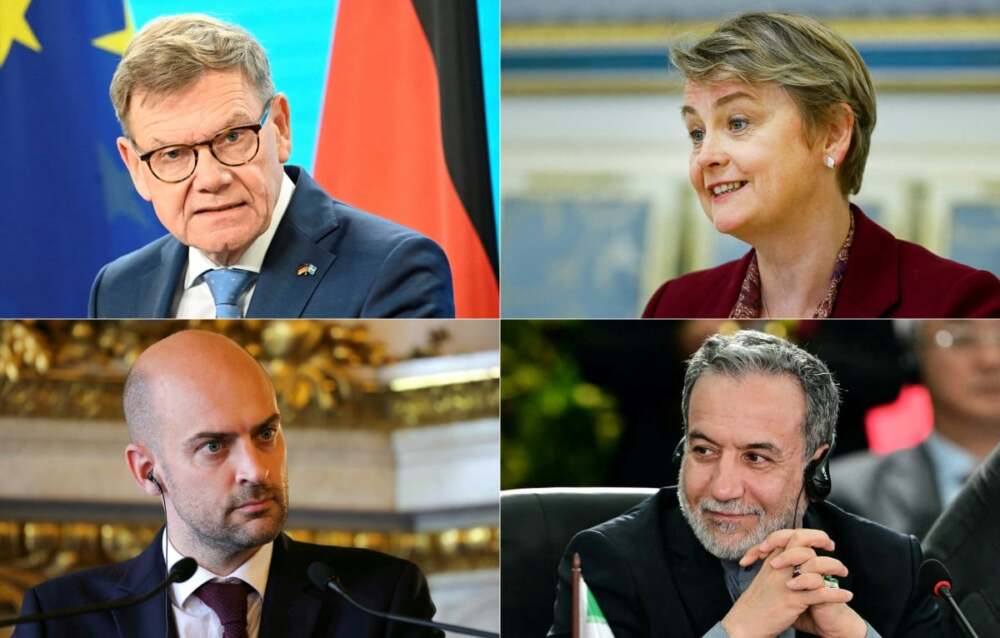Tehran has announced that it will suspend its cooperation with the International Atomic Energy Agency (IAEA), reacting strongly to recent moves by Britain, France, and Germany to reimpose United Nations sanctions. The decision marks a serious escalation in tensions over Iran’s nuclear programme and raises doubts about whether diplomatic solutions still have room to operate.
What Led to This
- Under the 2015 nuclear deal (JCPOA), certain UN sanctions were lifted in exchange for Iran limiting its nuclear activities and allowing inspections.
- Britain, France, and Germany — known collectively as the E3 — activated the “snapback” mechanism, asserting that Iran has not fulfilled its obligations under the agreement.
- The UN Security Council recently failed to pass a resolution that would have prevented the reimposition of those suspended sanctions.
- Earlier this month, Iran and the IAEA had reached an understanding in Cairo to resume inspections of nuclear sites, including those impacted by military strikes. But Tehran says European trigger of snapback now undermines that monitoring deal.
Iran’s Position & Reactions
- Iran’s Supreme National Security Council described the European action as “ill-considered,” arguing that it damages months of engagement with the IAEA and makes trust more elusive.
- The council said that despite ongoing diplomatic activity and proposals from Iran to resolve nuclear oversight issues, Europe’s decision effectively forces Iran to suspend its cooperation.
- Tehran insists its nuclear programme is peaceful, denying allegations of weaponisation. It views the snapback threat as unjust, claiming it violates commitments by other parties under the deal.
What the Sanctions Snapback Means
If no substantive progress is made within the coming days, the sanctions lifted under the 2015 deal could be reimposed as early as the end of the current month. These would include:
- An arms embargo
- Restrictions on uranium enrichment and reprocessing
- Limits on ballistic missile activity
- Asset freezes and travel bans targeting Iranian individuals and entities
These measures carry both diplomatic and economic risk for Iran, potentially isolating it further on the global stage.
Possible Implications
- Diplomatic Collapse: With cooperation halted, oversight by the IAEA will be severely hindered, reducing transparency and increasing suspicion.
- Regional Security: Neighbouring states and global powers may perceive Iran’s suspension of cooperation as a step toward more aggressive postures.
- Economic Consequences: Renewed sanctions may affect Iran’s trade, banking access, and foreign investment, even in sectors nominally considered civilian.
- Negotiation Uncertainty: Halting cooperation could poison the diplomatic environment, making it harder to restore trust or reopen meaningful negotiations.
What’s Next
Iran has been given a narrow window to take steps that might avert full reinstatement of sanctions. These include allowing full access to IAEA inspectors and engaging constructively with European powers. How much Iran is willing to compromise remains unclear.
On the European side, the E3 have framed the snapback as a legal tool under the original nuclear agreement. Their choice reflects mounting frustration over what they say has been repeated non-compliance by Tehran.
Meanwhile, Iran’s leadership has vowed that the country will “overcome obstacles” posed by renewed sanctions. Whether that means accommodation or confrontation — or both — is likely to play out in the coming weeks.
Final Thought
The move to suspend cooperation with the IAEA underlines how fragile current diplomatic structures are around Iran’s nuclear file. When agreements and trust are strained to this extent, the risk of miscalculation grows. The world now watches to see whether sanctions snapback drives Iran back to the negotiating table — or pushes the standoff toward a more perilous phase.
















Leave a Reply